Past Music Directors
There has been 13 SLSO Music Directors since the orchestra’s founding in 1880 with inaugural Music Director Joseph Otten.
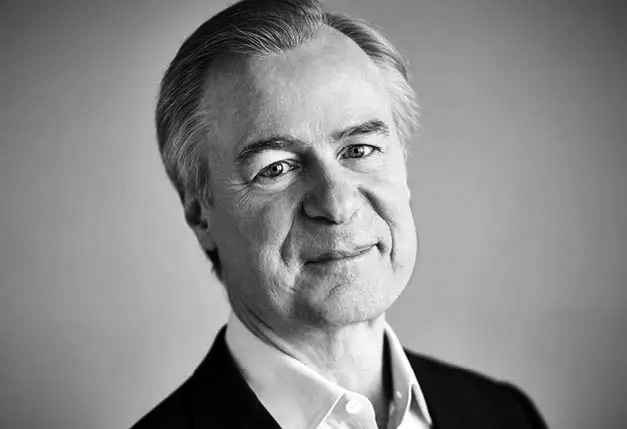
David Robertson (2005–2018)
David Robertson was one of the longest-serving Music Directors of the SLSO, holding the position from 2005-2018. During his tenure, he was known worldwide as a champion of contemporary composers, an ingenious and adventurous programmer, and a masterful communicator whose passionate advocacy for the art form is widely recognized. A consummate and deeply collaborative musician, Robertson was known for his intensely committed music making.
During his 13-year tenure with the SLSO, Robertson solidified the orchestra’s standing as one of the nation’s most enduring and innovative. His established and fruitful relationships with artists across a wide spectrum was demonstrated by the orchestra’s ongoing collaboration with composer John Adams. The 2014 release of City Noir (Nonesuch)—comprising works by Adams performed by the SLSO—won the Grammy Award for Best Orchestral Performance. Robertson is the recipient of numerous musical and artistic awards, and in 2010 was made a Chevalier de l’Ordre des Arts et des Lettres by the Government of France.
Born in Santa Monica, California, Robertson was educated at London’s Royal Academy of Music, where he studied horn and composition before turning to orchestral conducting.
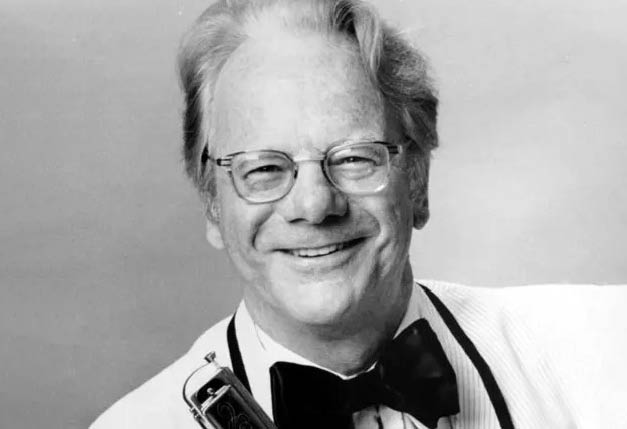
Richard Hayman, Pops Conductor (1976–2014)
America’s favorite “Pops” conductor, Richard Hayman was Principal Pops Conductor of the SLSO and the Grand Rapids Symphony Orchestras, a post he also held with the Detroit and Hartford Symphony Orchestras, the Calgary Philharmonic, and Orchestra London Canada. His original compositions are standards in the repertoire of these ensembles, as well as frequently-performed selections for many bands and orchestras throughout the world. For more than 30 years, Hayman served as chief arranger for the Boston Pops Orchestra during Arthur Fielder’s tenure, providing special arrangements for dozens of their hit albums and famous singles.
After his tenure with the SLSO, Hayman concentrated most of his time on guest-conducting special Pops concerts. Season after season he was invited to return by leading orchestras across the continent to conduct popular concerts during their orchestra seasons, as well as for their summer festivals. Hayman was closely affiliated with the SLSO since his appointment as Principal Pops Conductor in 1976. He was named the McDonnell Douglas Principal Pops Conductor in 1979. Each season from 1976 to 2004, he led both the Pops at Powell and Queeny concerts.
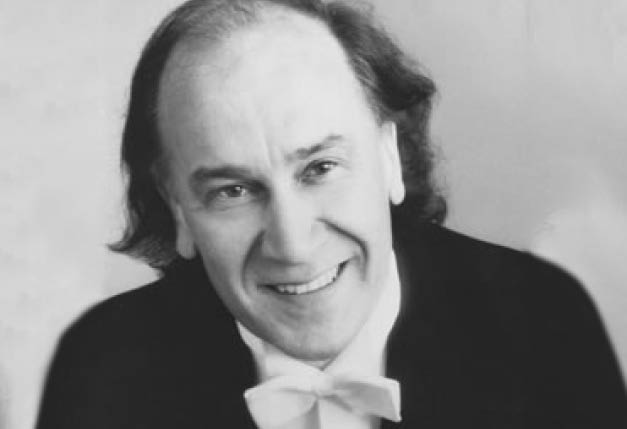
Hans Vonk (1996-2002)
Hans Vonk served six seasons as the Orchestra’s Music Director, from 1996-2002.
A sought-after conductor, the distinguished Dutch conductor appeared with many of the world’s most prestigious orchestras and led performances at major opera houses in Europe and North America, while also remaining active in the musical life of his native Holland.
Born in Amsterdam, Vonk studied piano at the Amsterdam Conservatory and conducting. His first conducting appointment was with the Netherlands Ballet from 1966 to 1969. He then became Assistant Conductor of the Concertgebouw Orchestra. He was Chief Conductor of the Netherlands Opera from 1976 to 1985, during which time he was also Conductor of the Netherlands Radio Philharmonic (1973 to 1979) and Associate Conductor of London’s Royal Philharmonic Orchestra (1976 to 1979).
In addition to his position with the SLSO and the Netherlands Radio Philharmonic, Vonk appeared with numerous American ensembles, including the orchestras of Boston, Cleveland, New York, Los Angeles, and Philadelphia.
After six seasons as Music Director of the SLSO and 36 years as a conductor who has distinguished himself in concert halls all over the world, Vonk passed away at his home in Amsterdam in 2004.
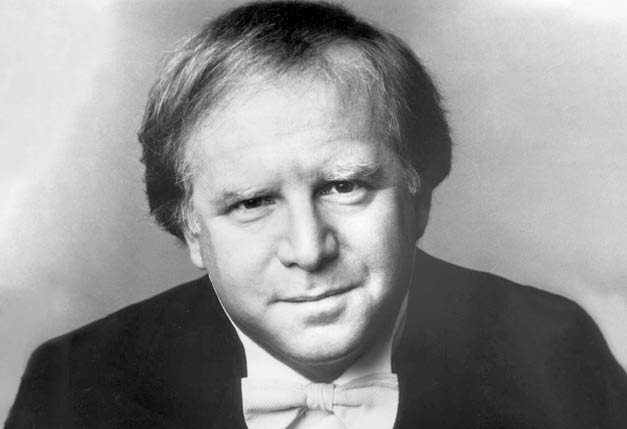
Leonard Slatkin, Conductor Laureate (1979-1996)
Internationally-recognized American conductor Leonard Slatkin is synonymous with the SLSO and its successes throughout the 1980s and 1990s. His performances throughout North America, Europe, and the Far East have been distinguished by imaginative programming and highly praised interpretations of both the standard and contemporary symphonic repertoire. Additionally, he is well known for his arts advocacy work on behalf of music education.
Following a successful tenure as Music Director of the SLSO from 1979 until 1996, Slatkin was named Conductor Laureate and went to position in Washington, D.C., and Detroit.
Throughout his career, Slatkin demonstrated a commitment to arts education and reaching diverse audiences. He founded the St. Louis Symphony Youth Orchestra in 1970 and has also worked with student orchestras across the U.S. During his tenure with the SLSO, he developed the orchestra’s unique focus on contemporary American repertoire, commissioning and performing dozens of new work. He was also instrumental in the creation of the SLSO’s IN UNISON program, an initiative designed to connect the SLSO with the communities surrounding Powell Hall.
Born in Los Angeles to a distinguished musical family, his parents were the conductor-violinist Felix Slatkin and cellist Eleanor Aller, founding members of the famed Hollywood String Quartet. Slatkin began his musical studies on the violin and studied conducting with his father, followed by Walter Susskind at the Aspen Music Festival and School and Jean Morel at the Juilliard School.
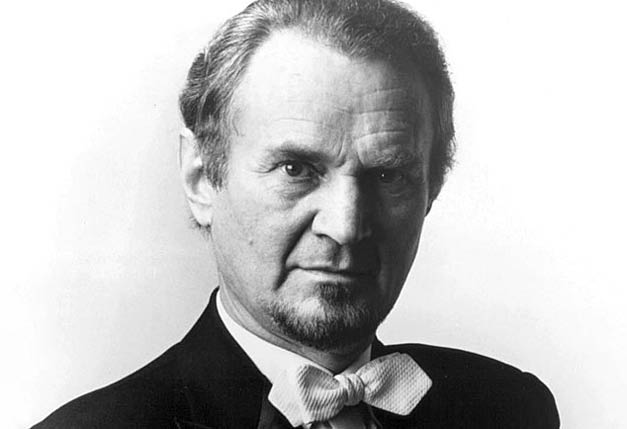
Jerzy Semkow (1975-1979)
Polish conductor Jerzy Semkow was named to replace Walter Susskind as Music Director in 1975. As musicians and individuals, the two maestros were quite opposite. While Susskind was congenial and talkative, Semkow was focused and all about discipline. He demanded perfection from himself and his orchestra. Semkow was strict and exacting his personal preparation and in rehearsal, polished in performance, and even instigated post-concert reviews with the musicians of their performance. His programming was considered conservative, but he made up for this in his exacting musical standards.
Semkow held positions in Russia with the Leningrad Philharmonic, State Opera, and the Bolshoi Theater. In his native Poland, he served as Director and Conductor of the National Opera of Warsaw. Semkow’s Music Directorship saw the addition of a new summer pops series at Queeny Park in west St. Louis county and the founding of the St. Louis Symphony Chorus. The Queeny Pops were a highlight of St. Louis summers for more than 25 years and the St. Louis Symphony Chorus earned a reputation as the premiere orchestral choral ensemble in the country.
Ultimately, Semkow felt more at home in Europe. In 1978, he announced he would leave St. Louis to take a position with the Radio Orchestra of Rome.
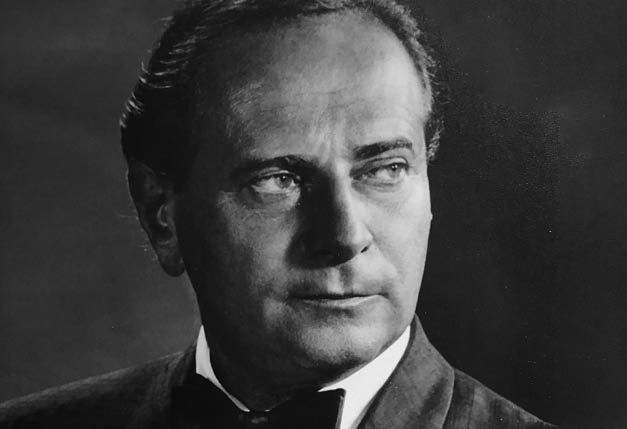
Walter Susskind (1968-1975)
In 1968, Walter Susskind was named Music Director of the SLSO. He was the most accomplished conductor yet to assume the post. Formerly Music Director of the Toronto Symphony and Director of the Aspen Music Festival, Susskind appeared regularly with the major orchestras of Europe and North America. An accomplished composer, pianist, and conductor, Susskind brought a new musical standard to St. Louis. As a friendly and articulate speaker, Susskind immediately appealed to St. Louis audiences. He enjoyed the most civil relationship with the orchestra of any conductor up to that time and continued to build the ensemble in both numbers and quality.
It was under his direction that the SLSO came together as a leading American orchestra. A return to the “classics” pleased the audience and the number of classical concerts began to grow. In addition, several summer festivals were added to the orchestra’s schedule, including the Mississippi River Festival at the campus of Southern Illinois University at Edwardsville.
Susskind was also known as a great mentor of young conductors. Two of these, Leonard Slatkin and Gerhardt Zimmermann, both assistant conductors brought on by Susskind, went on to notable careers with the SLSO. A person always seeking new challenges, Susskind left the SLSO in 1975.
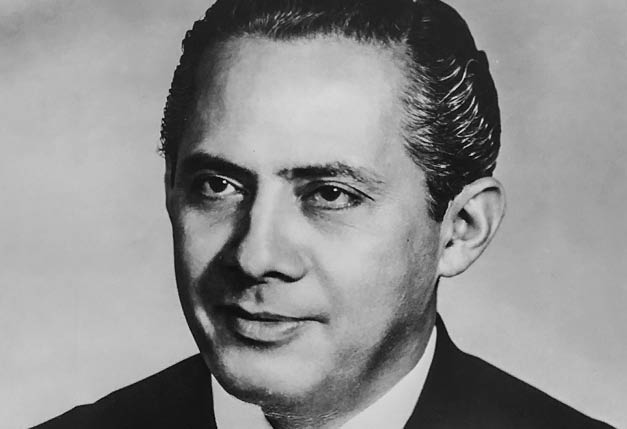
Eleazar De Carvalho (1963-1968)
Appointed Music Director in 1963, Brazilian conductor Eleazar De Carvalho brought a fiery musical style and intense commitment to contemporary music to St. Louis. De Carvalho considered it his mission to establish the SLSO as the premiere cultural institution dedicated to promoting an understanding of contemporary arts in this country. His programming was unorthodox and designed to educate and inform his audience of a particular work’s place in musical history, often by comparing it to similar earlier and later works on the same program.
Under De Carvalho’s guidance, the orchestra grew more than 90 members. His music directorship also saw the orchestra’s move to Powell Hall in 1968, the orchestra’s first permanent home and one of the premiere concert halls in the United States at the time. The SLSO’s catalogue of world and U.S. premieres and performances of recent compositions from this period is staggering.
In 1968 De Carvalho announced he was moving on to the Pro Arte Symphony at Hofstra University. After leaving St. Louis, Eleazar De Carvalho continued as a noted educator of conductors and musicians with a specialty in contemporary composition for the rest of his life.
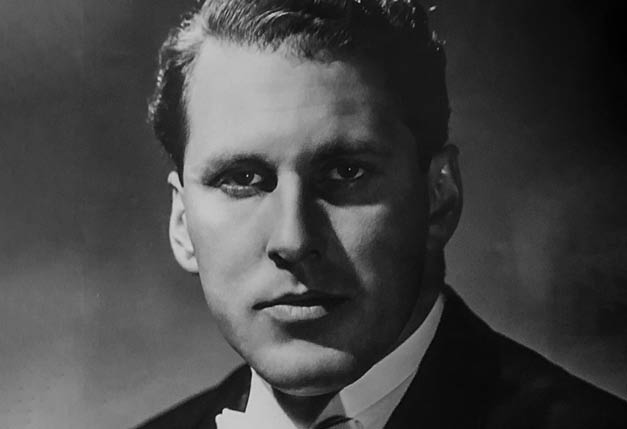
Eduard van Remoortel (1958-1962)
Eduard van Remoortel was appointed Music Director of the SLSO in 1958. Considered a public relations coup in its day, the appointment of the young and dashing Belgian was greeted as the start of a new era in popularity for the SLSO. Van Remoortel was trained as both a conductor and cellist at the Conservatory of Brussels. Although his directorship was highly anticipated and his preliminary appearances with the orchestra were favorable, van Remoortel’s fanatical dedication to memorization of the score, musical inexperience at such a major post, and personal inability to get along with a majority of the orchestra led to four turbulent seasons.
Frequent conflicts and threats of terminating members of the orchestra led to a public image of constant disputes. Once, in his first season, the orchestra even voted not to play for van Remoortel to protest of his attempted firing of 42 musicians. Still, this period saw a rise in the orchestra’s overall quality and visits by the premiere artists and guest conductors of the day. Van Remoortel’s tenure fizzled to an end in the 61/62 season as he was only engaged to conduct a less-than-customary seven concerts.
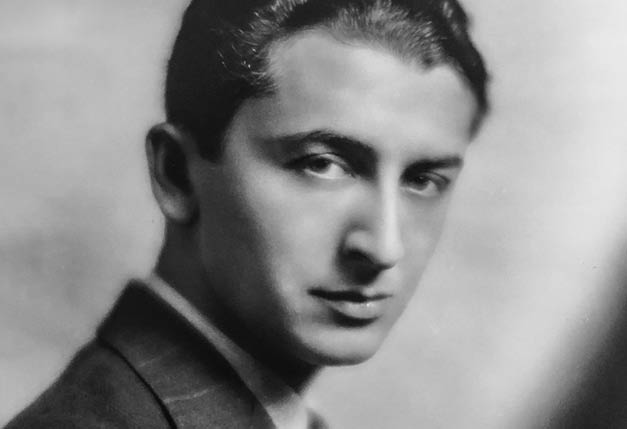
Vladimir Golschmann (1931-1958)
After four years of guest conductors and no permanent leader, the SLSO Board was looking for a conductor who could reinvigorate the orchestra and the St. Louis musical community. They found their answer in French conductor Vladimir Golschmann. Golschmann and his wife, Odette, took St. Louis by storm. They brought with them a sense of French high style and immediately took to St. Louis’ social circles and established themselves as a glamorous and watched couple in the press. Golschmann made friends with the orchestra quickly and their collaboration pushed the quality of performance to new heights. The seasons were set at 18 orchestral concerts and four popular concerts. As a recruiter, Golschmann brought to St. Louis several principal players of great importance and formed a strong base of new musicians in the orchestra.
Golschmann’s musical style was quite elegant and had a French flair, which provided great contrast to the many German-dominated orchestras of the day. His tenure of 27 years is one of the longest for a major American orchestra. Golschmann’s international reputation brought to St. Louis the highest caliber soloist of the day and moved St. Louis into the upper tier of American orchestras. He became Conductor Emeritus in 1955, initiating a search for his successor, and retired in 1958.
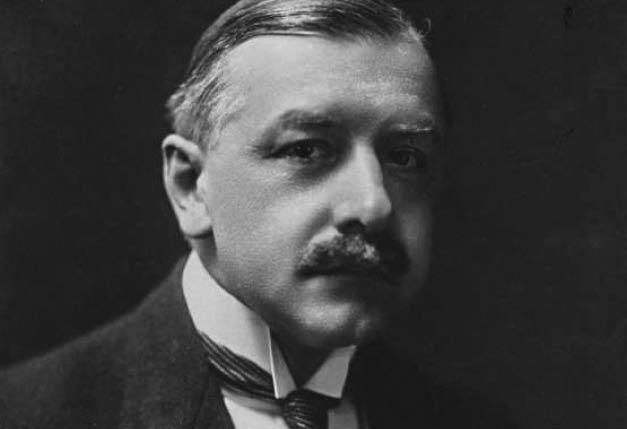
Rudolph Ganz (1921-1927)
Born in Zurich in 1877, Rudolph Ganz was named permanent conductor of the SLSO in 1921 upon the death of Max Zach. A child prodigy on both piano and cello, Ganz made his debut with the Berlin Philharmonic in 1899. From 1910-1915, he was head of the piano department at the Chicago Musical College. He toured extensively as a soloist and was most noted for his performance of contemporary composers. Ganz was not a conductor by trade, but what he brought to the orchestra was superb musicianship, a noted name, and a personality which allowed him to connect with his audience.
A champion of both children’s concerts and touring, the SLSO and Ganz traveled extensively, performing to audiences young and old. He was noted for his style of shaking the hand of every member of the audience. Ultimately, Ganz’s love for contemporary music was his downfall. Audience distaste for the works of Stravinsky, Mahler, Respighi, Schoenberg, and others lead to a community movement to remove the conductor. Although Ganz encouraged the audience to hiss at works they disliked, a petition was circulated calling for his removal. Before it could be served to the symphony Board, the Board called for the maestro’s resignation and his tenure ended with the 26/27 season.
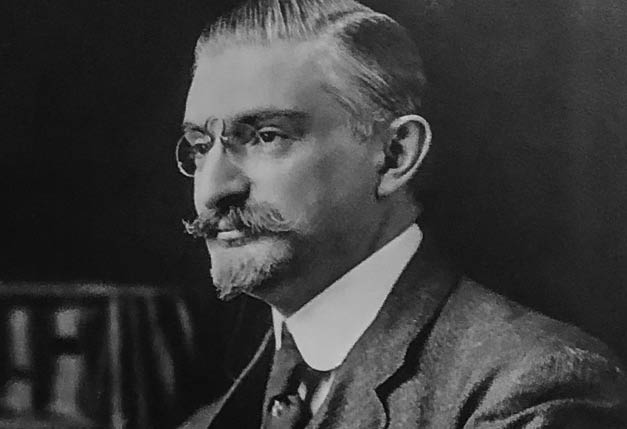
Max Zach (1907-1921)
Two important changes came in 1907: Max Zach was named the third conductor and the organization officially became the St. Louis Symphony Orchestra. The new conductor and the new name were both an attempt by the board of directors to solidify the place and quality of the orchestra in the American musical scene. Zach, former principal viola of the Boston Symphony, had 10 years experience as a conductor. He brought to the orchestra a strong conviction for classical repertoire, more professional rehearsals, and the first regular seasonal paychecks. He also was a recruiter of new and noteworthy musicians for his orchestra. Thus performance quality vastly improved.
An exacting conductor, Zach began his tenure with a total of eight classical concerts and 18 popular concerts. Slowly, he increased the musical level of the audience and presented a more balanced schedule of 15-20 classical concerts and approximately 20 popular concerts. This period also saw the introduction to St. Louis of world-renowned guest soloists. Much of the standard orchestral repertoire was introduced to the SLSO’s programming in this period. Zach died at age 56, in 1921, from an infection acquired after the extraction of a tooth.
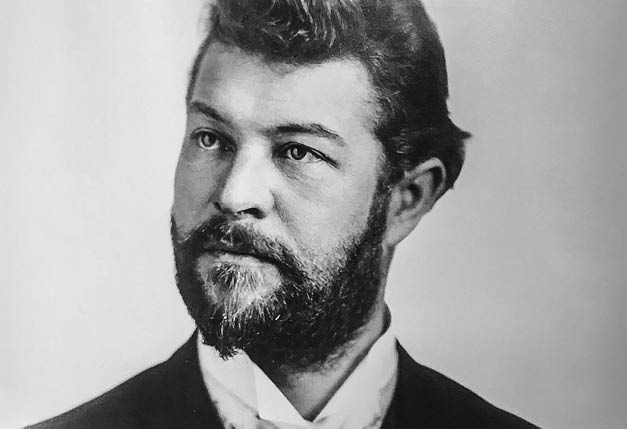
Alfred Ernst (1894-1907)
German-born pianist Alfred Ernst became the second conductor of the St. Louis Choral-Symphony Society in 1894. Then 26, Ernst had limited experience as a conductor with the Court Opera at Gotha. Having been trained in Leipzig, Ernst was principally a pianist. A talented musician, he quickly settled into his new post in St. Louis. In five years, he increased the concert season from six to 12 concerts. The 1904 World’s Fair in St. Louis brought an increased focus to the orchestra, as well as the appearance of guest conductors and some popular music programs. The orchestra performed most days throughout the fair. After the fair, the orchestra began performances in its first home—the Odeon Theater at Grand and Finney Avenues.
Wishing to return to his native Germany, Ernst stepped down in 1907. During his tenure, the orchestra reached a strength of 55 members and the chorus close to 200. Alfred Ernst continued his career, mostly as a conductor of opera, in Germany.
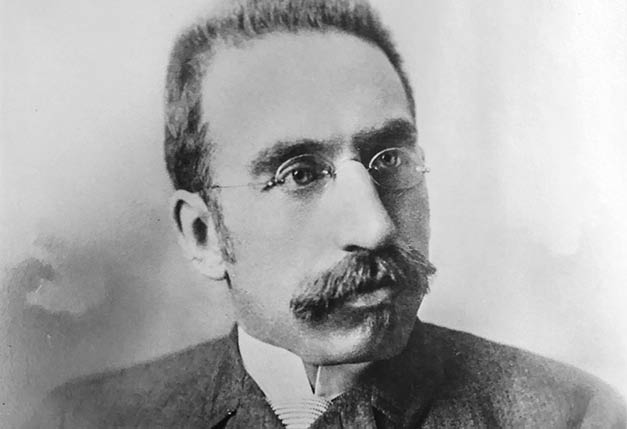
Joseph Otten, Founding Conductor (1880-1894)
A native of Holland, Joseph Otten became the director of the St. Louis Choral Society and later the St. Louis Choral-Symphony Society at the age of 28. He originally came to St. Louis to direct a small choir, which disbanded after six weeks. In an attempt to form a choir he could conduct, Otten gathered interested citizens and established the St. Louis Choral Society in 1880. In the 81/82 season, the chorus of 80 was joined by an orchestra of 31 members. A later merger with members of the disbanded Musical Union orchestra brought about the unofficial creation of the St. Louis Choral-Symphony Society.
In 1893, the St. Louis Choral-Symphony Society was formally incorporated, still emphasizing the choral aspects of their season which, at the time, were more popular. During Otten’s tenure, the seasons reached a height of nine subscription concerts. With an accumulating deficit in their 14th season, the board of directors cut the subscription season to just seven concerts. Disgruntled with these cuts, Otten resigned at the end of the 93/94 season.